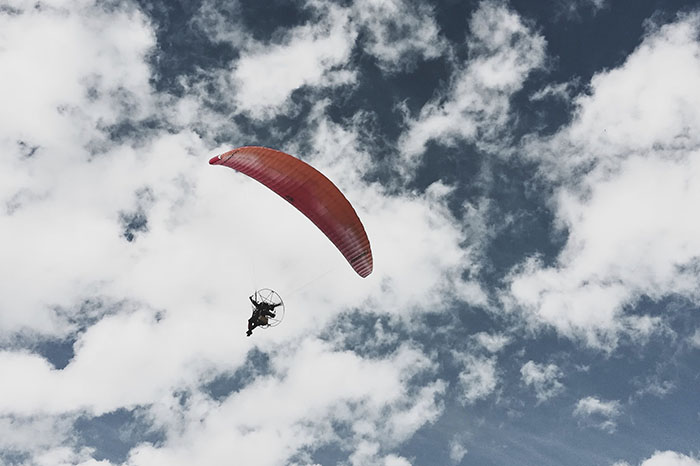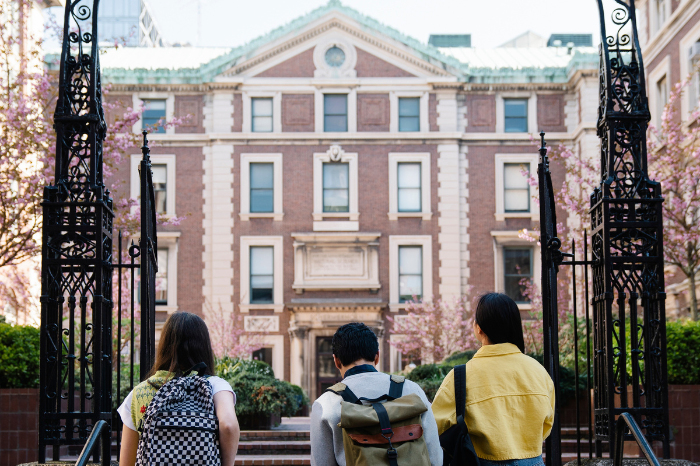When I started writing in elementary school, the stories flowed out of me like magic. I remember hunching over my paper, scribbling down each chapter as fast as I could. Writing was fun and effortless and — at least the way I remember it — I never agonized over ideas or phrasing. I just put down on paper what came into my mind (an exiled princess! a talking hotdog!) and the results felt original, wild, wonderful. Inspired by this experience that was so boundless and all my own, I continued to write through high school and college and eventually pursued an MFA in Creative Writing at the Iowa Writers’ Workshop. That’s when the trouble began.
Now I was surrounded by people who identified first and foremost as Writers with a capital W, many of whom had already published stories and books, and were, compared to me, savvy in the ways of the writing world. I felt suddenly young (I was young—24) and in a different orbit. Still, if I had stopped and looked at the fact that I had been among only 2% chosen from the applicant pool to be admitted to the Workshop, I might have felt a better sense of connection. I knew that the people reading the application manuscripts had believed that I was worthy of admission to what has generally been considered the best MFA program in the country. Intellectually, I understood this, but when it came down to the quiet moments between me and my keyboard, those facts didn’t carry much weight.
I had to find a way to block out external voices and criticism and allow myself to do the writing equivalent of a freefall.
I began to have difficulty hearing my own voice over the many opinions of both my professors and my fellow students. I was no longer able to dive into my writing with curiosity and an open mind. The worst moments for me were the hours sitting alone with my blank computer screen, wanting so badly to tap into what had once seemed like an unlimited resource, and instead finding something wrong with every sentence I wrote. My creative output came to a screeching halt.
I had to find a way to block out external voices and criticism and allow myself to do the writing equivalent of a freefall. In order to freefall, whether it’s in a team-building exercise or in your own mind, you have to feel safe. You have to be able to let go, to disconnect from all expectations and judgment, to let the brain do the same kind of magic that, in my case, had once come so naturally. For me, the trick was to make a promise to myself: nobody would see what I was writing. I could pursue whatever idea came to mind, no matter how ridiculous it seemed, and I didn’t fret about the language since I would be the only reader. Inevitably, this self-coaching helped dislodge my stuck ideas, and this small amount of breathing room allowed me to not only complete new drafts but also happily break my promise about not sharing them.
This experience directly informs the work I do with my students at Hillside. When I am gently prodding them to mine their memories for the images or moments that are there, ready to rise to the surface, I am asking them to trust me and to allow their subconscious to do its magic. What I learned to provide myself — that unburdened exploratory space — I seek to provide for others, and what’s required is a conversational connection through which students feel safe and understood.
This was certainly true in the case of Max, who came to me with an essay he had written in English class that was, in his eyes, adequate but not good enough. The essay was neatly constructed into five concise paragraphs. It included a well-described anecdote and ultimately concluded with a self-revelatory statement, but it didn’t leave me feeling as though I knew Max much better than I had before I started reading his sentences. It was flat. It didn’t spark my curiosity because it hadn’t sparked his.
Once Max and I started talking, I opened the door to various topics that he could pursue, watching and listening carefully to see if he lit up at any point. I remember a few moments when I couldn’t contain my own excitement about a possible topic because it was so compelling to me, but when I listened to him, I knew he didn’t share my enthusiasm. He’d say, “I mean, I guess I could write about that” in the same deflated tone that he’d had when talking about the essay he’d written for English class.
This is probably where coaching is most challenging: I know that the right creative path exists, that the necessary combination of personal details and feelings about those details are within reach of the student, but we haven’t located them yet. I knew how crucial it was that Max write about something that he felt genuinely excited about or interested in because his writing would inherently reflect that energy. If he felt only “fine” about whatever he was writing, the essay would just be “fine.” So we kept plugging along.
It was like a strangely uneven ping-pong match: I’d serve an idea or question, and Max would respond with the equivalent of a shrug. Again and again. He was far from freefalling. But although he remained seemingly closed, the process was showing him my interest in him and also opening new potential connections in my brain. Curiosity was doing its work. Eventually, when I suggested a way that he might weave together a reflection on a particularly formative experience with a description of one of his unique interests, he responded immediately. It was as if he’d been dozing and was finally stirred awake. He became animated and talkative, and we brainstormed together, outlining the bones of an essay that ultimately would say something that really mattered to him and, as a result, would engage any reader.
At the end of our work together, he sent me a final email with the subject line: “I did it!”
In my own writing, the art of learning how to do that creative freefall will always be a work in progress. That’s just the nature of the writing process. My hope is that, when the inevitable moments of doubt hit, my students can know that they aren’t working in a vacuum. While the essays they are writing are their own creation, I am right there with them. Connection and trust are the keys that unlock the best essay ingredients, ones that resonate deeply with the student and ultimately pique the curiosity of the reader.
Eliza is a Hillside coach.




